
The University of York is a public collegiate research university in York, England. Established in 1963, the university has expanded to more than thirty departments and centres, covering a wide range of subjects.
Trent University is a public liberal arts university in Peterborough, Ontario, with a satellite campus in Oshawa, which serves the Regional Municipality of Durham. Trent is known for its Oxbridge college system and small class sizes.
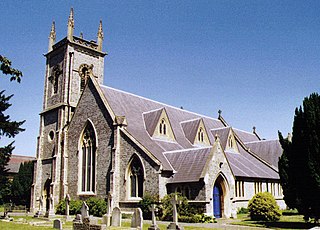
Earley is a town and civil parish in the Borough of Wokingham, Berkshire, England. Along with the neighbouring town of Woodley, the Office for National Statistics places Earley within the Reading/Wokingham Urban Area; for the purposes of local government it falls within the Borough of Wokingham, outside the area of Reading Borough Council. Its name is sometimes spelt Erleigh or Erlegh and consists of a number of smaller areas, including Maiden Erlegh and Lower Earley, and lies some 3 miles (5 km) south and east of the centre of Reading, and some 4 miles (6 km) northwest of Wokingham. It had a population of 32,036 at the 2011 Census.
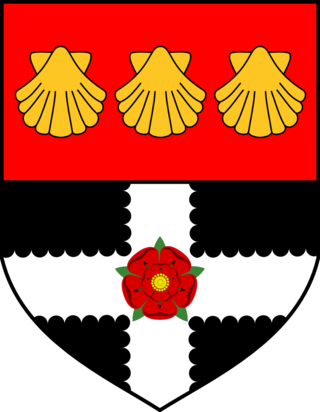
The University of Reading is a public research university in Reading, Berkshire, England. It was founded in 1892 as University College, Reading, a University of Oxford extension college. The institution received the power to grant its own degrees in 1926 by royal charter from King George V and was the only university to receive such a charter between the two world wars. The university is usually categorised as a red brick university, reflecting its original foundation in the 19th century.

The University of Hull is a public research university in Kingston upon Hull, a city in the East Riding of Yorkshire, England. It was founded in 1927 as University College Hull. The main university campus is located in Hull and is home to the Hull York Medical School, a joint initiative with the University of York. Students are served by Hull University Union.
The University of West London (UWL) is a public research university in the United Kingdom with campuses in Ealing, Brentford, and Reading, Berkshire.
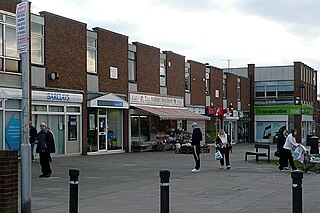
Tilehurst is a suburb of the town of Reading in the county of Berkshire, England. It lies to the west of the centre of Reading; it extends from the River Thames in the north to the A4 road in the south.
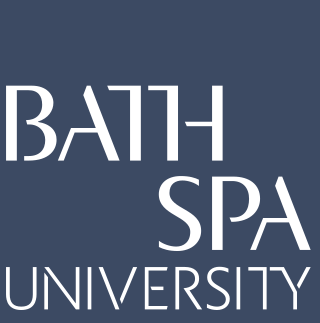
Bath Spa University is a public university in Bath, England, with its main campus at Newton Park, about 3+1⁄2 miles (5.6 km) west of the centre of the city. The university has other campuses in the city of Bath, and one at Corsham Court in Wiltshire.

Woodley is a town and civil parish in the Borough of Wokingham, in Berkshire, England. Woodley is 4 miles (6.4 km) east of Reading and adjoined to Earley which is 2 miles (3.2 km) to the west of the town and Woodley is 5 miles (8 km) from Wokingham. Nearby are the villages of Sonning, Twyford, Winnersh, Hurst and Charvil.

Southcote is a suburb of Reading in the English county of Berkshire. Located to the south-west of Reading town centre, Southcote has a population of about 8,500. The settlement lies primarily between the London-to-Bath road and the River Kennet.
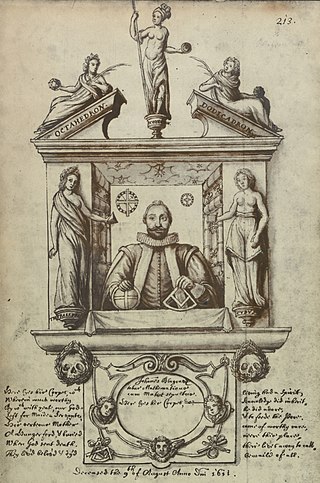
John Blagrave of Reading was an English Tudor mathematician, astronomer and designer of astronomical and mathematical instruments. His astrolabe designs, which he described in his writings, were advanced for Britain. He devoted himself to mathematical study and was called, by Anthony à Wood, "the flower of mathematicians of his age"

Griffith College Dublin (GCD) is one of the longest-established private third level colleges in Dublin, Ireland.

Bulmershe Court was a campus of the University of Reading, situated in what is now the Reading suburb of Woodley, in the English county of Berkshire.

Calcot Park is a country house, estate, and golf club in the English county of Berkshire. It is situated between Calcot and Tilehurst, suburbs of the town of Reading, and within the civil parish of Tilehurst. It is north of the Bath Road.

Mary Hare School is a residential co-educational Non-Maintained special school for deaf pupils in Newbury, Berkshire, England. It consists of around 230 pupils from Reception to Year 13.
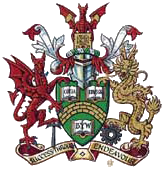
The University of South Wales is a public university in Wales, with campuses in Cardiff, Newport and Pontypridd. It was formed on 11 April 2013 from the merger of the University of Glamorgan and the University of Wales, Newport. The university is the second largest university in Wales in terms of its student numbers, and offers around 500 undergraduate and postgraduate courses. The university has three main faculties across its campuses in South Wales.
The National Center on Deafness is an American educational institution aimed at facilitating the education of deaf students. The facilities of the National Center on Deafness are located on the campus of California State University, Northridge, Los Angeles, California. Each year the university hosts the International Conference on Technology and Persons with Disabilities.
Craig Andrew Crowley is the 8th President of the International Committee of Sports for the Deaf, served between 2009 and 2013.















